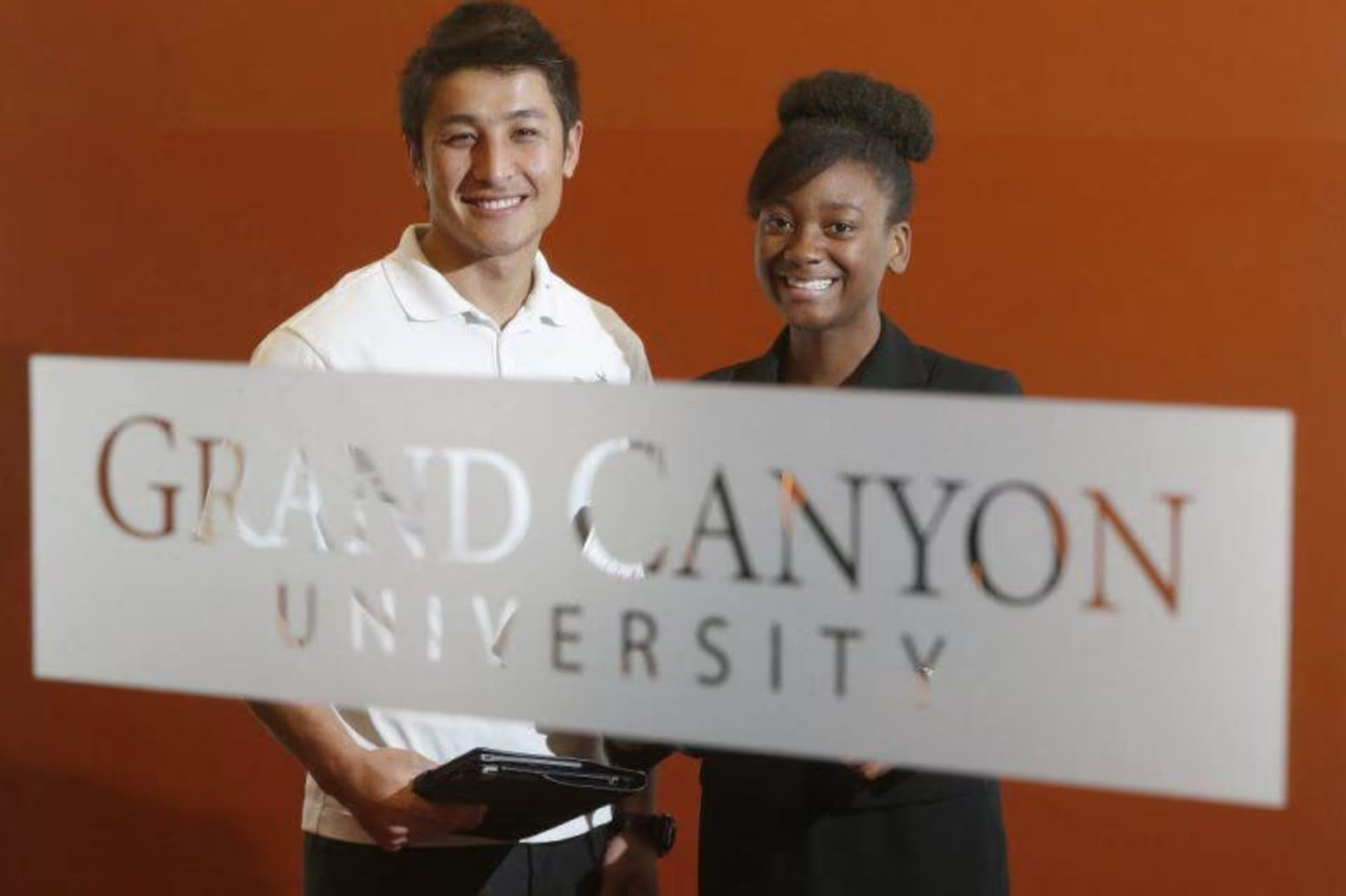Read time 3 minutes
Published on Nov 18, 2015
Read time 3 minutes
Published on Nov 18, 2015
Speak with a University Counselor today.
The views and opinions expressed in this article are those of the author’s and do not necessarily reflect the official policy or position of Grand Canyon University. Any sources cited were accurate as of the publish date.
The Grand Canyon University speech and debate team celebrated its first overall tournament victory at the Robert Barbara Invitational #1 at California State University, Northridge. The team finished first place among four-year universities in individual events in speech. Out of the 11 schools, GCU beat two of the top-ranked schools in the nation—Arizona State University and University of California, Berkeley.
To provide context, ASU finished last year ranked in the top 10 in the nation. UC Berkeley has five of the top 10-ranked competitors in Northern California in their respective speech events. Despite those stats, the Lopes came out victoriously.
Team director Barry Regan, also a College of Humanities and Social Sciences (CHSS) communications instructor, proudly believes this achievement ranks as the team’s most impressive team victory in the regular season in the three-year history of the team. “Beating both of these programs is truly a landmark moment for our team,” he said.
ASU and UC Berkeley also had larger entries than GCU, which illustrates the depth of the team’s young talent. Seventy percent of GCU’s sweepstakes points were accumulated by freshmen—a rarity for a four-year school to accomplish.
The winning team was led by the following key performers: freshmen Chrycia LeGendre, Keliann Nash, Thomas Gleason and TaylorRae Humbert, juniors Jessica Bradley and Brian White, and the top varsity debate team of Thomas Rotering and Zachary Kuykendall.
Sherman Elliot, dean of the College of Humanities and Social Sciences, shares how this enormously satisfying victory is truly exciting.
Also as a result of the first place showing, the bi-weekly parliamentary debate team rankings ranked GCU in the top 20 in the nation out of 138 schools. GCU moved from 31(See disclaimer st) place to 16(See disclaimer th) place—ranking ahead of teams that have consistently been in the top 10 in the nation for the past few years.
This is just the beginning as the team keeps moving ahead, especially under the leadership of speech and debate coach Barry Regan and the impact of new assistant coach Michael Dvorak.
The speech and debate team competes in three different speech events, including impromptu, persuasive information and interpretation of literature. The two different types of debate include prepared debate, which is more parliamentary and heavily researched with topics stemming from current events. Limited preparation focuses on more real-world application and values-based debating. Competing may involve speaking without memorization or preparation, presenting a practiced speech related to the audience and debating practiced discussions of ideas.
Benefits of being a speech and debate team member include:
Making (and competing on) the team serves as a great launching pad for graduate degrees and careers, especially since tryouts are competitive, creating a strong team. In its third year, the team is also two-time defending Christian national champions in the small-school division, and GCU finished 15(See disclaimer th) overall in the Pi Kappa Delta National Tournament.
Stay tuned for more impressive wins from the speech and debate team. GCU is not only proud of the immense talent of the speech and debate team, but how the team nationally represents the university, providing evidence of GCU’s outstanding and credible academics.
To learn more about GCU’s clubs and organizations, visit our website or click the Request More Information button at the top of the page!
